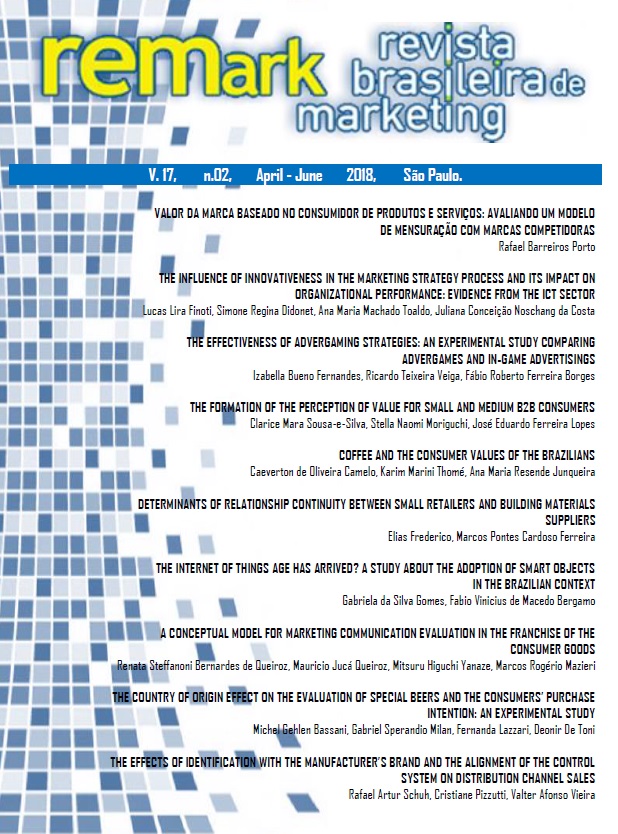The Effectiveness of Advergaming Strategies: An Experimental Study Comparing Advergames and In-game Advertisings
DOI:
https://doi.org/10.5585/remark.v17i2.3534Keywords:
Advergaming, Advergame, In-game Advertising, Interactive Promotional Strategy, Internet.Abstract
Objective: This article aimed to explain the generated effect of advergaming strategies in the attitude of the players towards the brand, as well as the recall of the brand.
Method: Were compared the characteristics of the main strategies of advergaming, the advergames (brand-themed games) and the in-game advertisings (games with the addition of brands). To test the hypotheses an experiment was conducted with a sample of 165 University students, divided randomly into three groups that played games created in GameSalad platform with different exposure levels of brand: game without brand, fictional brand insertion in the background (in-game advertising) and fictional brand-themed game (advergaming).
Originality/Relevance: Considering the small number of papers on the advergaming theme, especially in national journals where no studies have yet been published experimenting its effectiveness, this article contributes to a better understanding of the theme, presenting a reflection on the effectiveness of in-game advertisings and advergames.
Results: The results showed that advergames and in-game advertisings cause a significantly positive change in attitude towards the brand and that the observed frequency of memory and recall of the brand are significantly higher in advergames compared to in-game advertisings.
Theoretical/Methodological Contributions: The paper presents evidence that the use of advergaming is effective in building a favorable attitude towards the brand, as well as in the aspect of building brand awareness.








